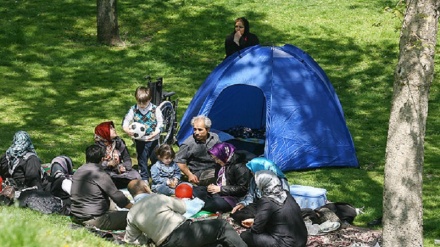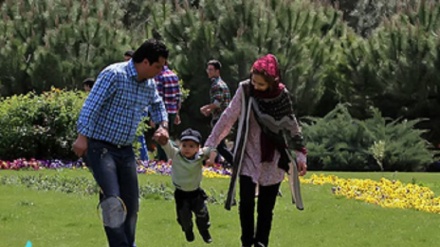Iranian Family (25)
Welcome to this week's episode of the series "Iranian Family". Marriage and selection of one's spouse has always been influenced by the related cultural framework, and every given community has set a number of rules and regulations to supervise marriages based on its conditions and circumstances.
The 21st ayah of Surat al-Rum in Holy Quran notes: "And of His signs is that He created for you mates from your own selves that you may take comfort in them, and He ordained affection and mercy between you. There are indeed signs in that for a people who reflect."
Undoubtedly, throughout the human existence, life is eternalized when it is blended with peace of mind and kindness. In the meantime, attainment of peace of mind and kindness is impossible in the absence of selflessness and endurance of hardships. Meanwhile, women; as daughters, spouses, and mothers can embed kindness and tranquility within the hearts of their brothers, husbands, and children.
Establishment of families and marriage could initially be considered as a private matter, and individuals, at the time of selection of their spouse and establishment of family, may feel that they are freely making their choice. However, the fact of the matter is that they are unwittingly complying with highly precise and complicated role models and rules and regulations, which have gone through major developments throughout the course of history.
In the present-day Iranian community, parents still play a main role in organization of the marriage of their children. Among Kurds, parents play a fundamental role to this end and marriage among relatives is highly common. The majority of women who have married their relatives; agree with the marriage of their children with their relatives, too. Women who maintain a higher cultural capital or are more committed to the values of extended families, are more approving of marriage with relatives, in comparison to other women.
Within the Iranian Kurdish community, extended families are highly common, comprising of parents, children and their own families. The solid bond among Kurdish familial members and tribes has granted them peace of mind. In the Kurdish community, families maintain a solid structure and the rate of divorce is observed to a lesser extent among Kurds in comparison to other communities. Kurds maintain amicable bonds with each other and share each other's sorrows and happiness.
The life of Kurds is especially coupled with happiness, music, and festivities. Whenever an opportunity is raised for expression of happiness, Kurds seize the related opportunity. Generally speaking, Kurds constitute a happy community.
Kurdish women are highly active in different familial, social, economic, and artistic scenes. One of the main features of Kurdish women, in their families and married life is that they protect the rights of the family, and play their effective role in life.
According to an expert in social affairs, Kurdish women are the cornerstone of their families. They play reconciliatory roles in the disputes which may arise in the family; thereby easily solving familial problems and concerns.
In a Kurdish region, children learn the norms of the community and are encouraged to maintain and safeguard familial heritages. Weaving rugs, prayer mats, and felts, in addition to production of Kurdish garments and engagement in delicate arts have been commonplace as of ancient times to this day within Kurdish families; and have been transferred from one generation to the other.
One of the other distinguishing features of Kurdish women from other women, across the world, is that inappropriate circumstances such as wars and even presence of enemies cannot obstruct their familial, social, and economic activities. In fact, Kurdish women further actualize their potentials throughout difficult times. They also fully comply with the Islamic dress code and their hijab.
In the view of Islam, one of the conditions which is considered for selection of one's spouse is related to his/her beliefs. Holy Quran clearly points out that a Muslim man does not have the right to marry a polytheist woman. Also, marriage of Muslim women with male disbelievers is prohibited.
MR/ME


